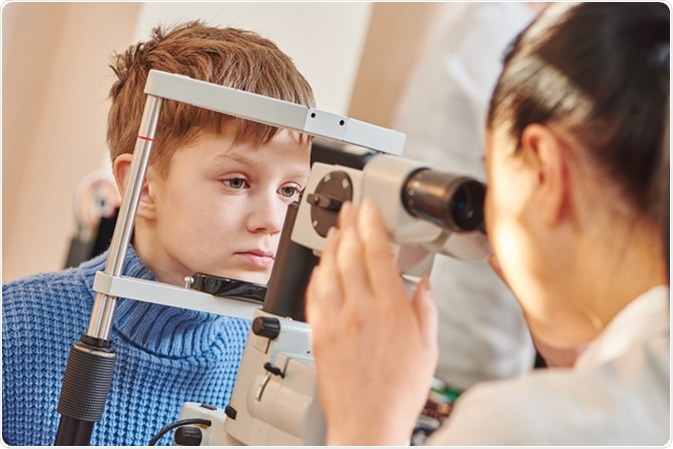Andalusia Pediatrics: Exceptional Take care of Children's Health Requirements
Andalusia Pediatrics: Exceptional Take care of Children's Health Requirements
Blog Article
Is Refractive Surgical Procedure Right for You? Aspects to Think About for Better Eyecare
In the world of eye treatment, the decision to go through refractive surgical procedure is a substantial one that requires thoughtful factor to consider. From the intricacies of one's eye health and wellness to the ins and outs of everyday routines and individual expectations, each aspect holds relevance in the broader landscape of refractive surgery candidacy.
Eye Wellness Examination
When considering refractive surgical treatment, a thorough eye health and wellness analysis is essential to examine the viability of the treatment for every person. eye doctors in andalusia. This examination involves a series of evaluations and tests performed by an eye care professional to determine the total health and wellness of the eyes, the visibility of any type of underlying problems, and the stability of the refractive error
Throughout the assessment, numerous aspects are taken into consideration, such as the patient's clinical history, present eye prescription, corneal thickness, student dimension, and tear film quality. These evaluations assist to recognize any type of contraindications to refractive surgery, such as corneal problems, cataracts, or neglected eye infections. Furthermore, the analysis aids to manage patient assumptions relating to the prospective end results of the surgical procedure based upon their distinct eye features.
Inevitably, the eye health and wellness evaluation is crucial in guaranteeing the safety and efficiency of refractive surgery, as it offers beneficial insights into the person's eye wellness status and helps establish one of the most appropriate therapy alternatives for achieving ideal aesthetic results. (eye doctors in andalusia)
Lifestyle Evaluation
An extensive lifestyle analysis is indispensable in figuring out the suitability of refractive surgical procedure for an individual's visual modification needs. Lifestyle elements such as occupation, pastimes, and day-to-day activities play a crucial function in the decision-making procedure concerning refractive surgical procedure.
In addition, lifestyle routines such as sporting activities participation, exterior activities, or even skin care regimens can affect the healing procedure and total success of refractive surgical treatment. By performing a comprehensive way of life evaluation, eye treatment experts can tailor their referrals and treatment plans to fulfill the special demands of each person, eventually leading to enhanced visual results and complete satisfaction.
Assumption Alignment

Establishing practical expectations entails detailed pre-operative discussions between the person and the eye doctor. The specialist needs to transparently connect the possible threats, benefits, and constraints of the procedure (neurologist andalusia). People need to comprehend that while numerous individuals accomplish 20/20 vision or much better following refractive surgical treatment, some might still call for glasses for certain activities like analysis or driving at evening. Handling these assumptions assists prevent frustration and discontentment post-surgery, bring about a much more positive general experience for Website the person.
Threat Evaluation

Elements that might enhance the threat of difficulties include age, certain medical conditions like autoimmune illness, unstable vision prescription, thin corneas, and unrealistic individual expectations. Furthermore, picking a skilled and experienced cosmetic surgeon, adhering to pre and post-operative treatment guidelines diligently, and revealing any type of appropriate case history can aid reduce risks.
To lessen the possibility of issues, her comment is here ophthalmologists carry out extensive pre-operative evaluations to determine any contraindications to surgery. They also go over the possible threats and benefits with clients throughout the assessment procedure. By participating in open interaction and shared decision-making, both the individual and the eye doctor can function with each other to figure out if refractive surgical procedure is the ideal option based upon individual danger profiles and desired outcomes.
Examination Significance
Considering the critical duty of educated decision-making in examining threats and potential difficulties in refractive surgery, the examination procedure holds significant importance in directing patients in the direction of ideal outcomes. Throughout the assessment, the ophthalmologist reviews the person's eye More Info wellness, refractive mistakes, and overall suitability for surgical procedure. This preliminary evaluation is critical in identifying one of the most suitable procedure for every individual, considering elements such as corneal density, pupil dimension, and existing eye conditions.
Furthermore, the appointment serves as an opportunity for individuals to discuss their assumptions, issues, and any kind of concerns they might have relating to the surgical procedure. Clear communication in between the individual and the specialist is vital to guarantee practical assumptions and a complete understanding of the prospective risks and advantages entailed.
In addition, the assessment enables the specialist to describe the different surgical choices offered, their particular outcomes, and the post-operative care called for. This comprehensive conversation encourages individuals to make well-informed decisions concerning their eye care, leading to better contentment and end results post-surgery.
Final Thought
Finally, people considering refractive surgical procedure must undertake a thorough eye health and wellness evaluation, examine their lifestyle practices, align their assumptions with prospective results, evaluate the involved dangers, and prioritize appointments with eye care specialists. These elements play an important role in identifying the suitability of refractive surgical procedure for each and every individual, making certain optimum end results and contentment with the procedure.
Individuals thinking about refractive surgery frequently have high assumptions relating to the end results, expecting ideal vision without the demand for glasses or contact lenses. While refractive surgery can considerably improve vision and minimize dependence on aesthetic aids, it is essential for individuals to understand that results might differ based on private variables such as the degree of refractive mistake, corneal density, and general eye health.
By involving in open communication and shared decision-making, both the patient and the eye doctor can work together to determine if refractive surgery is the right option based on private risk accounts and preferred outcomes.
Considering the crucial function of notified decision-making in evaluating risks and potential difficulties in refractive surgical procedure, the assessment procedure holds substantial relevance in leading patients towards optimum outcomes. During the assessment, the eye doctor examines the individual's eye health and wellness, refractive errors, and overall suitability for surgery.
Report this page